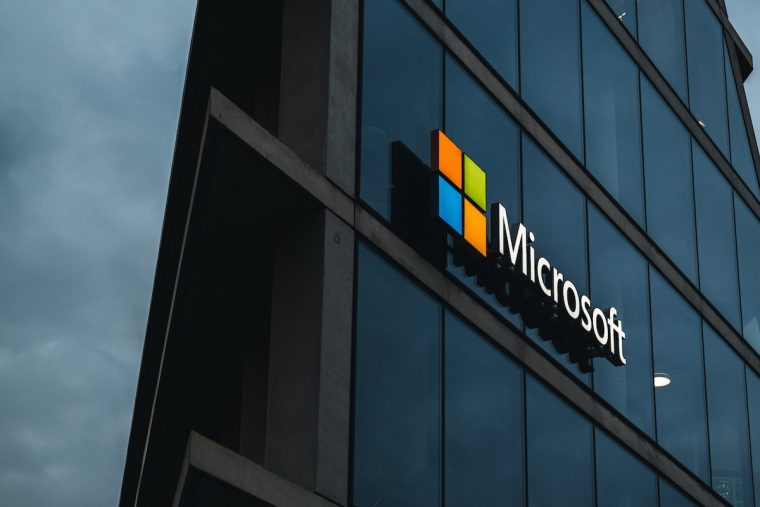
Last week, the United States Federal Trade Commission (FTC) made headlines by failing to block Microsoft’s $69 billion acquisition of the games maker Activision Blizzard.
On 20 July the FTC officially announced that it had chosen to withdraw its administrative challenge, with many questioning whether the FTC has as much power as it once used to have.
FTC vs Microsoft Corp.
In mid-January 2023, Microsoft Corp. had announced its decision to acquire Call of Duty-maker Activision Blizzard for nearly $69 billion. The tech-giant’s decision, however, was met with a number of hurdles, one of which was the FTC’s filed lawsuit.
According to the FTC, if the deal were to go through, it would have had the potential to harm competition across the video game sector and help Microsoft monopolize the console gaming industry in particular.
In mid-July 2023, however, an anti-trust judge granted Microsoft a massive win and while the FTC was adamant to keep pushing the lawsuit, it eventually announced that it would be withdrawing the administrative challenge amid claims of public interest.
“Withdrawal would benefit the public and support the main goal of Rule 3.26(c). After a five-day hearing, the district court determined that the FTC is unlikely to win on any of the claims of competitive harm presented in its Complaint for several valid reasons,” the FTC stated in a release on July 18, 2023.
The FTC’s aforementioned ups and downs were causes of a number of raised eyebrows. If the governing body was unable to halt Microsoft’s deal with Activision, is it really as powerful as it claims to be and is it choosing the right fights?
Can the FTC Enforce Anti-Trust Laws?
Recent news suggest that the FTC has trouble enforcing anti-trust laws, especially because the body had tried to challenge Microsoft’s deal in two ways and failed both times.
CEO of The Stock Dork, Adam Garcia told Business2Community that the FTC’s appeal has had a limited impact on stopping the deal between Microsoft and Activision who even extended their deadline to 18 October 2023, thus giving both companies more time for negotiations and resolving any other possible regulatory concerns.
“These developments suggest that the FTC’s power and authority to enforce anti-trust laws may be somewhat limited, at least in this case. The ability of major tech companies like Microsoft to overcome legal challenges and proceed with their acquisition plans despite FTC opposition indicates that there may be certain obstacles preventing the agency from regulating anticompetitive practices in the tech industry effectively. Whether the FTC will ultimately have enough power to enforce anti-trust laws in this specific case or others like it remains to be seen, and it might require further examination and potential changes to the existing regulatory framework,” Garcia added.
On the other hand, Joshua Singer, an expert AI consultant, stressed that the current anti-trust laws were written at a time that did not “foresee the unique issues posed by digital platforms and the digital economy”.
FTC Defeat Could Have High Consequences
Garcia notes that consequences of the aforementioned defeat may be “significant” in the future as it could show other tech companies that the FTC is struggling to successfully block major merges and acquisitions thus leading to further consolidation and concentration of power in the industry therefore also raising questions of competition and consumer welfare.
The CEO and founder of Ling App, Simon Bacher agreed, adding:
“The setback in the court ruling against the FTC’s attempts to block Microsoft’s acquisition of Activision may have been influenced by various factors, such as legal interpretations and evidence presented, and it could potentially impact the FTC’s future enforcement efforts by setting a precedent for similar cases.”
Moreover, the recent line of events could further suggest that the FTC could be struggling to prevent deceptive practices, data breaches and other forms of harm, especially since the rise of online platforms, social media and digital marketing.
“The FTC’s struggles in consumer protection may indicate a need for the agency to adapt its regulatory strategies to the digital era. This could involve exploring innovative approaches to oversight, collaborating with other regulatory bodies, and seeking legislative updates to enhance its authority and address emerging consumer protection concerns,” Garcia added.
Achieving Anti-Trust Goals Without the FTC
Bacher noted that one of the best ways for companies to achieve anti-trust goals without relying on regular bodies in the likes of the FTC could be through self-regulation and innovation.
Garcia added that establishing industry-specific codes of conduct as well as providing users with clear information about products, services, pricing and terms of use through transparency will allow consumers and competitors to make informed decisions and comparisons.
Singer added that companies can achieve anti-trust goals by implementing strong internal compliance programs including the creation of a culture that emphasises ethical business practices, conducting regular audits and providing anti-trust training to employees.
“In addition, working with legal experts and consultants can ensure they are aware of the latest changes in regulations and legal rulings,” Singer concluded.
Related Articles
- Microsoft Plans to Charge $30 for AI Features But Are They Good Enough to Compete With Cheap and Free AI Tools?
- Microsoft Inks Surprising Partnership with Meta for Its AI Models
- Here’s How Microsoft’s Mistakes Led to the Largest Breach of Unclassified US Government Data Since 2020
What's the Best Crypto to Buy Now?
- B2C Listed the Top Rated Cryptocurrencies for 2023
- Get Early Access to Presales & Private Sales
- KYC Verified & Audited, Public Teams
- Most Voted for Tokens on CoinSniper
- Upcoming Listings on Exchanges, NFT Drops